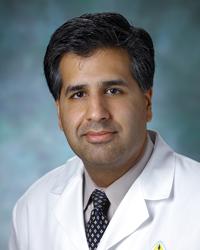Research Lab Results
-
Bakker Memory Lab
Research in the Bakker Memory Laboratory is focused on understanding the mechanisms and brain networks underlying human cognition with a specific focus on the mechanisms underlying learning and memory and the changes in memory that occur with aging and disease. We use a variety of techniques including neuropsychological assessments, experimental behavioral assessments and particularly advanced neuroimaging methods to study these questions in young and older adults and patients with mild cognitive impairment, Alzheimer’s disease, Parkinson’s disease and epilepsy. Through our collaborations with investigators in both basic science and clinical departments, including the departments of Psychiatry and Behavioral Sciences, Psychological and Brain Sciences, Neurology and Public Health, our research also focuses on brain systems involved in spatial navigation and decision-making as well as cognitive impairment in neuropsychiatric conditions such as schizophrenia, eating disorders, obsessive-compulsive disorders, depression and anxiety. -
Balagopal Lab - Viral Hepatitis and Translational Virology
The Balagopal Lab has adapted high-resolution tools to study viruses in situ. Specifically, we were the first to quantify hepatitis C virus (HCV) infection in single hepatocytes by developing single-cell laser capture microdissection (scLCM) and integrating this tool with highly sensitive quantitative real-time PCR. We reported that HCV infects a minority of hepatocytes that are found in geospatial clusters. More recently, we (PIs Balagopal and Thio) integrated scLCM with droplet digital PCR (ddPCR) to reveal the first observations of hepatitis B virus (HBV) infection at single cell resolution in the liver. We found that HBV infects nearly all hepatocytes prior to antiviral therapy. However, during antiviral therapy, HBV infection is diminished while viral transcription is markedly attenuated. Our lab has also focused on HIV-1 infection and immune activation for over a decade. Most recently, we have studied type 1 interferon responses to HIV-1 using RNA sequencing (RNAseq). Using this technology, we identified novel interferon-stimulated genes (ISGs) that are associated with HIV-1 restriction in vivo.
-
Beer Lab
The goal of research in the Beer Lab is to understand how gene regulatory information is encoded in genomic DNA sequence. Our work uses functional genomics DNase-seq, ChIP-seq, RNA-seq, and chromatin state data to computationally identify combinations of transcription factor binding sites that operate to define the activity of cell-type specific enhancers. We are currently focused on improving SVM methodology by including more general sequence features and constraints predicting the impact of SNPs on enhancer activity (delta-SVM) and GWAS association for specific diseases, experimentally assessing the predicted impact of regulatory element mutation in mammalian cells, systematically determining regulatory element logic from ENCODE human and mouse data, and using this sequence based regulatory code to assess common modes of regulatory element evolution and variation. -
Benjamin Bodnar Lab
Research in the Benjamin Bodnar Lab focuses on global health, particularly the application of quality-improvement techniques in resource-limited and developing health care environments. Lab work utilizes insights gained through Dr. Bodnar's past work with projects including Partners in Health, The Millennium Villages Project and the Mulago University-Yale University Collaboration in Uganda.
-
Berger Lab
The Berger Lab's research is focused on understanding how multi-subunit assemblies use ATP for overcoming topological challenges within the chromosome and controlling the flow of genetic information. A long-term goal is to develop mechanistic models that explain in atomic level detail how macromolecular machines transduce chemical energy into force and motion, and to determine how cells exploit and control these complexes and their activities for initiating DNA replication, shaping chromosome superstructure and executing myriad other essential nucleic-acid transactions. Our principal approaches include a blend of structural (X-ray crystallography, single-particle EM, SAXS) and solution biochemical methods to define the architecture, function, evolution and regulation of biological complexes. We also have extensive interests in mechanistic enzymology and the study of small-molecule inhibitors of therapeutic potential, the development of chemical approaches to trapping weak protein/protein and protein/nucleic acid interactions, and in using microfluidics and single-molecule approaches for biochemical investigations of protein dynamics. -
Bert Vogelstein Laboratory
The Bert Vogelstein Laboratory seeks to develop new approaches to the prevention or treatment of cancers through a better understanding of the genes and pathways underlying their pathogenesis. Our major focus is on cancers of the colon and rectum. We have shown that each colon neoplasm arises from a clonal expansion of one transformed cell. This expansion gives rise to a small benign colon tumor (called a polyp or adenoma). This clonal expansion and subsequent growth of the tumors appears to be caused by mutations in oncogenes and tumor suppressor genes, and the whole process is accelerated by defects in genes required for maintaining genetic instability. Mutations in four or five such genes are required for a malignant tumor to form, while fewer mutations suffice for benign tumorigenesis. As the mutations accumulate, the tumors become progressively more dangerous. Current studies are aimed at the further characterization of the mechanisms through which these genes act, the identification of other genes that play a role in this tumor type, and the application of this knowledge to patient management. -
Best Laboratory
The Best Laboratory focus on therapeutic vaccine development for HPV-related diseases by developing a murine model of papilloma analogous to Recurrent Respiratory Papillomatosis (RRP) for testing of DNA vaccine technology. We also work to understand the immunosuppressive tumor microenvironment that facilitates RRP development, and translate this work into novel therapies and clinical practice.
-
Bimal Ashar Lab
Research in the Bimal Ashar Lab focuses on preventive medicine, medical education and dietary supplements. Recent research explored medical residents' knowledge of dietary supplements and examined the reported validity and reliability of methods for evaluating continuing medical education.
-
Biophotonics Imaging Technologies (BIT) Laboratory
Research in the Biophotonics Imaging Technologies (BIT) Laboratory focuses on developing optical imaging and nano-biophotonics technology to reduce the random sampling errors in clinical diagnosis, improve early disease detection and guidance of biopsy and interventions, and improve targeted therapy and monitoring treatment outcomes. The imaging technologies feature nondestructiveness, unique functional and molecular specificity, and multi-scale resolution (from organ, to architectural morphology, cellular, subcellular and molecular level). The nano-biophotonics technologies emphasize heavily on biocompatibility, multi-function integration and fast track clinical translation. These imaging and nano-biophotonics technologies can also be potentially powerful tools for basic research such as for drug screening, nondestructive assessment of engineered biomaterials in vitro and in vivo, and for studying brain functions on awake animals under normal or controlled social conditions. -
Borahay Lab: Gynecologic and Fibroids Research
Dr. Borahay's lab focuses on understanding pathobiology, developing novel treatments, and carrying out high quality clinical trials for common gynecologic problems with a special focus on uterine fibroids. Our lab also investigates the causes and novel treatments for menstrual disorders such as heavy and irregular periods. In addition, Dr. Borahay’s team explores innovative approaches to minimally invasive gynecologic surgery, focusing on outpatient procedures with less pain and faster recovery times.





